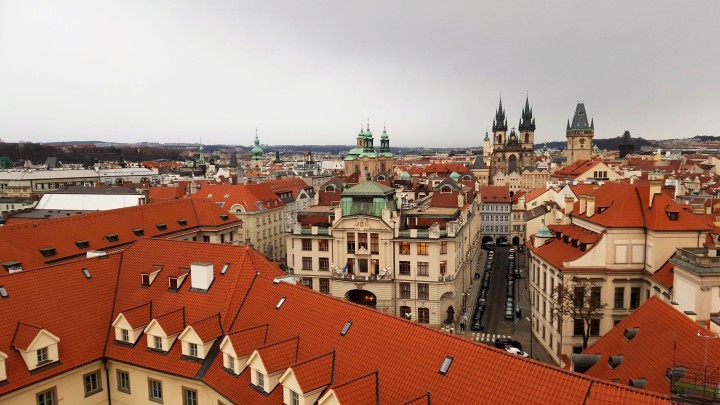
I visited my home town, Prague. In the research for my book, I met more people.
One was Mrs. F., a 92-year-old mother of a friend, a very sharp lady who is in a Jewish residential home because she is in a wheelchair.
Mrs F. was one of the lucky ones, she and her family emigrated in 1939. The story, like all those other ones, is unusual, and shows great inventiveness and bravery. Her parents have been smuggled out by miners in August 1939 from then already occupied Czechoslovakia to Poland. I wonder who these miners were.
Mrs F. and I spent a lovely afternoon talking. I never met her before, but I will come and see her again. I am told she’d like that, too. We clicked.
Talking to her reminded me how important it is to get those stories before this generation dies out. The generation of Holocaust survivors and the ones who managed to escape in time. I find both groups fascinating.
It also reminded me of the main reason for my novel. The problem of emigration. More and more, I find that chance played a big role. In circumstances like this, you sometimes only get one chance. Some people take it, some don’t.
Mrs F. relatives that did not emigrate were killed by the Nazis. Some of them did have a chance. They didn’t take it, because they didn’t want to leave their town, friends, country. They paid an unfair price to what is a normal human feeling- to stay where you belong.
But of course, life is not fair.
It is a big question, what to do when life in your country becomes a dangerous place. Do you stay and try to cope? Do you fight (not possible sometimes)? Do you leave and face new challenges and dangers?
I hope a novel can describe the solutions and fates better than just a testimony.
I might be wrong. My son told me yesterday that I should write down the real stories, create a family tree, that facts would be more useful and interesting than my novel.
Was I hurt? No, but I will try to prove him wrong. I might do both.
My son and I did some genetic testing- we gave it to each other as a Christmas gift.
It seems that the craziest family stories were true. One relative wrote an article about our family coming partly from Khazars, a nomadic Turkish tribe who in 6th century converted to Judaism. We all laughed at his idea. Yet, I have, according to the test a significant albeit small percentage of DNA from exactly that region.
My family spoke about us being Sephardic Jews evicted from Spain in 1492. I always thought it was unlikely, how would they get to Prague? Yet, the area my DNA comes from mostly is the Iberian Peninsula. Makes you wonder.
I might do all that family research and write it down for me and my sons.
But I will also finish my novel. Because if I write it right, it will make my readers think about racism, minorities, emigration, taking or missing a chance, and many other things.
Yes, the truth is at least as interesting as fiction. But in fiction, I have the freedom of expressing my deepest feelings, and use my own interpretation. And I won’t encounter angry relatives telling me that “It didn’t happen that way!”
So, I will write my novel first, and then go on to write down the truth about my family for my sons.
My main character Zuzana is writing the fictitious family story for her son. I will learn from her.
Yes, I know she is entirely my creation. But who says you can’t learn from literary characters? Even if you are the writer.

I chose memoir looking at my family history. I did so in three books. One day I would love to write some fiction. I can appreciate your choice. I think you would enjoy reading the finest memoir I have ever read, The Color of Water. The author is half Jewish and half African American. His Jewish, by birth, mom was an extraordinary mother to her numerous children. He alternates his history and hers in the chapters. He is James Mc Bride, a marvelous musician and writer. Hoping the best for your forthcoming publication.
LikeLike
Thank you, I will look it up
LikeLike
That sounds really interesting. My book is fiction, although lots of the stories are real. I just fictionalised the characters, sometimes changed gender etc. I’d say 30% of the novel is true. Thank you very much for your good wishes. My family lived in Prague for 400 years, so when common sense and chance told them to emigrate, they did not. Why didn;t they leave is the important question in my novel.
LikeLike